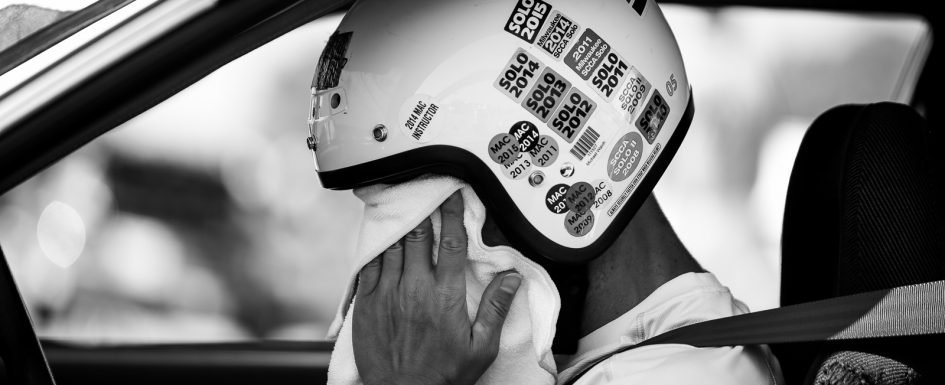The unbending truth is that a race has exactly one winner. Every other competitor loses, and depending on their expectations, each of them has to deal with varying degrees of the emotions that come with losing. A single loss can be hard enough to deal with, let alone a string of losses that shake our very ability to perform. No matter what the sport, every competitor hates losing, and for good reason! Besides the blow to the ego, losing actually hurts; not in an abstract way, but in a very real manner! It makes your stomach churn, changes your blood pressure, constricts thousands of muscles, impairs decision making, elevates stress, reduces testosterone, causes dopamine deprival, and much more. It’s real, we’ve all felt it, and it’s no fun. Your body wants to feel better. Your mind wants to prove its worth. Your ego wants to regain its self-image. These are real and measurable physiological and psychological effects. Losing, quite literally, feels really bad.
Fun fact: Winning not only feels better; it seems, winners also live longer! Academy Award-winners live, on average, four years longer than other actors.
Of course, it isn’t exciting or sexy to talk about losing. But the fact that only one driver wins a race and everyone else loses means that we would be well served to not just understand what losing does to our psychology, but also explore how to cultivate a more effective approach and way of thinking so we can make the best of the situation when we fail to win.
About second place
The fact that there is often such a fine line between winning and losing has an interesting effect how we feel about second place. There is a classic study that looked at athletes in the Olympics, where they looked to see how happy athletes were when they won. They presented photographs, and had unbiased people coding what the facial expression were. They were stunned at what they discovered. “You’ll see the common pattern: The gold medalist is very happy, the bronze medalist is very happy, and the silver medalist often had this sort of blank expression on his or her face – sort of staring out into the distance.”
Anecdotally, we are all aware of this. The closer we are to winning, without actually winning, the worse we feel.
What happens when we lose
When we fail to win, the natural response is to rationalize the loss. We make legitimate sounding excuses, most often in the form of blaming our vehicle or the condition of our tires. When we repeatedly fail to win, we lose confidence, and fall into thinking that we just can’t do it because the winner must be more talented. By blaming our equipment or our relative lack of talent, we successfully cushion the blow to our egos by making ourselves believe that we are doing the best we can with what we’ve got. But in doing so, we rob ourselves of the learning opportunity presented to us.
Whether we are talking about driving, day trading, or playing poker, the immediate emotionally-driven response to losing often involves engaging in risky behavior (over-driving, over-trading), trying to “make up” for a mistake, or on the flip side, getting overly cautious and terrified of making a mistake. At its most extreme, losing makes some people quit altogether. We need to learn to use losing as a relentless learning opportunity; to figure out what we do poorly, and fix it!
The “Winner Effect”
In his book, “The Winner Effect,” Ian Robertson argues that the reason it’s so much fun to win is largely chemical. “Winning increases testosterone, which in turn increases the chemical messenger dopamine, and that dopamine hits the reward network in the brain, which makes us feel better.” The “winner effect” is a term used in biology to describe how an animal that has won a few fights against weak opponents is much more likely to win later bouts against stronger contenders. As Ian Robertson reveals, this applies to humans as well.
So what does this mean for driving? While it is true that there is only one real winner from the perspective of the eventual race results, we can utilize our own fluid definition of winning and losing, as a means to manage our psychology, mindset, and expectations. It is important that we define what a “win” is ahead of time and measure our performance against that target, and not invent the definition after the fact as a way to coddle ourselves. In other words, it must be a goal we strive for, not a rationalization used to make ourselves feel better.
For example, it would be foolhardy for a novice to expect to win a race their first time out, but being “the fastest novice”, or “within XXX seconds of the winner” may be reasonable goals to set and strive for. This can be a very powerful mental approach, because as Robertson asserts, when we win fights against lesser opponents, we are more likely to win future fights against greater challengers. Of course, with each victory, the key is to keep advancing our definition of winning further towards real winning, and not languish in the comfort of easier “wins”. Such a mental approach can be very useful, particularly if we use it in conjunction with a concrete improvement plan where we set goals that are far enough to be challenges, but close enough to be achievable through concerted effort.
Managing expectations
We touched on “expectations” above, and it is worth taking a moment to be introspective about this. I believe it is absolutely vital to know your expectations intimately (this is true for life, not just racing). I don’t know the secret to happiness, but I DO know the secret to unhappiness. It is unfulfilled expectations.
We expect our lives to change and get great when we graduate from college, and then it doesn’t. We’re left unhappy. Why? No reason, everything is fine. We aren’t being shipped off to a prison camp, we have food, friends, and activities. But our reality didn’t meet our expectations. It also happens for many people after marriage. They expected this married fantasy bliss, and when it’s not there after about the first month, they get unhappy. Why? They’re married! They have an amazing significant other, maybe a new house, etc. Nothing is REALLY wrong, but they have unfulfilled (and perhaps unsaid) expectations, so they are unhappy.
Expectations and effort must be in balance.
What are your expectations with regards to racing? Are they realistic? Do you expect to always win? Or perhaps to always lose? Do you expect to be winning nationals championships immediately? Do you expect you will never be fast? If your expectations are beyond what you can currently achieve, unless you have a well defined improvement plan, your pain response will kick in and make you feel miserable. On the flip side, not everyone is playing to win! There are plenty of drivers who set lower targets, that they can consistently achieve, and they are happy staying at that level. Whether you are trying to extract every last thousandth in the pursuit of national championships, or are just having fun playing around in a smaller pond, you have to know and manage your expectations.
Winning is not in your control
If there’s one thing to take away from this post, this is it: Not even the greatest driver in the world can control whether he or she wins. Performing our best is the only thing that is in our control. Therefore, if we do not win, either we did not perform to our potential, or we need to increase our potential. Whether we are chasing a target we defined for ourselves or chasing a true victory, failing to achieve our goal is the most direct feedback we can possibly receive. Don’t treat losing as reason to doubt yourself; rather, treat it is nothing more than a very clear indicator that you have things to work on.
Be fastidious in determining what needs improvement; break down the problem, identify the root cause, come up with a plan to address the problem, and execute on that plan. We have previously talked about how to identify and fix execution errors, game plan errors, as well as how to use video analysis to really dissect our driving. Use those techniques (or come up with your own) to get to the bottom of whatever of holding back your performance and learn from your losses.
Losing isn’t a final judgment unless you make it one.
You can choose to let it break you, or use it to level up.


I 100% agree with you. Is this philosophy about winning and losing dynamics common knowledge? Because I paralleled this with advice on how to cope with life’s constant losses for those who are constantly feeling like losers. I loved your article I hope to discover more in the future your writing was easy to read and truly changes my perspective on life.
What are the implications of these findings for understanding the impact of near-wins on emotional well-being?